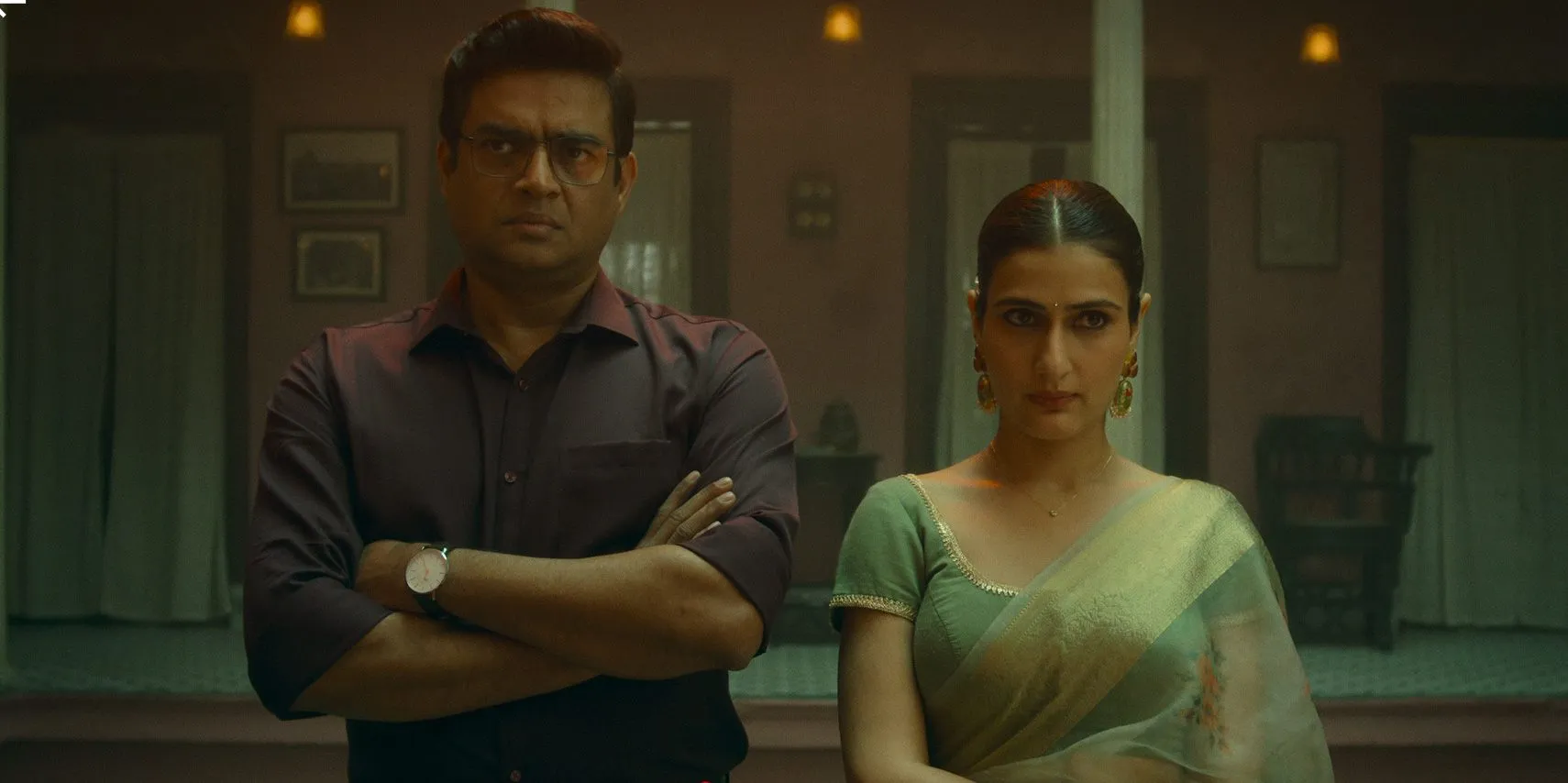I remember catching glimpses of Chameli on television, just before my mother would make me change the channel. Of course, I knew who Kareena Kapoor was and had seen her in several movies. But I was captivated by her in a red saree, partially wet, standing around a dimly lit alleyway. This image is still plastered in my mind, and I admire Kareena’s gait, her saree slung low on her hips, her candour, her jewellery as I grow into a woman.
In her paper Lifestyle as Resistance: The Case of the Courtesans of Lucknow, India, Veena Oldenburg writes about how the courtesans of Lucknow she interacted with were involved in ‘the covert subversion of a male-dominated world’ in their everyday lives. This is true of the women in Chameli too. The movie opens with several sex workers milling around their shared home talking about when they got home, how their night was. The women are making jokes about their clients’ virility, how they all like to imagine they are forlorn lovers; much like any other set of co-workers exchanging notes.
Chameli also talks about this subversion when she describes the lies she tells her clients about her backstory of how she became a sex worker, which results in a 500 rupee tip. This is similar to the elaborate charades Oldenburg says the Lucknowi courtesans engage in, or the stories of deceit to keep men the way they want them the women in Marjane Satrapi’s graphic novel Embroideries exchange. It reminds me of the age-old tip of asking a man to help you with something (which you usually already know) so he thinks he is smarter than you, and you need him.
https://www.youtube.com/watch?v=6DcW-xdkPz4
The movie also displays how men typically view sex workers, as moral outliers and impure, even as they transact with them. This is also true of Aman, the male protagonist. He knocks her hand away when she tries to touch him as she is soliciting his business in the beginning of the movie telling her not to touch him, viewing with her a lot of apprehension. Even as they converse at length through the movie, and he stays with her the entire night, ready to give her as much money as is needed, he still tells the friend he calls from the police station – ‘she’s a whore,’ in a hushed tone.
Chameli displays how men typically view sex workers, as moral outliers and impure, even as they transact with them.
Chameli presents sex work as work, albeit a dangerous, exploitative kind. When Aman refuses Chameli’s business, she uses the term ‘boni,’ used regularly in trade parlance, telling him that she has not yet had a single client that night. The movie does not present sex work as either solely victimhood or complete female agency, but just as work. At no point does Chameli ask to be ‘saved’ by Aman, display any desire to run away, or not take the lead in negotiating the terms of her business.
We see this in the item song Sajna Ve Sajna, where Chameli calls her pimp to negotiate and tell him who she will not do business with. She tells Aman, who has followed her to the bar, ‘Bola na maine, apun ka problem hai, apni tareeke so suljhaoongi’ (I said, it is my problem and I’ll solve it my way). This song is also interesting in the broader context of how item songs generally appear in movies. Item songs usually do form a part of the plot, and often involve a businessman, policeman or the villain transacting something with another man alongside the item number in the same bar.
Here, it is Chameli who is having such a side conversation, making for a break from the usual presentation of item songs. Chameli moves from dancing, almost forcedly, with her pimp to negotiating with him across a table, to almost being dragged out of the bar by the same pimp. This displays the thin lines between agency and non-agency that women, including sex workers, negotiate in their everydayness.
Chameli presents sex work as work, albeit a dangerous, exploitative kind.
The movie uses the trope of a woman smoking a cigarette in an interesting way. While this trope is usually used to signify a ‘bad woman’ (an adulteress, villain, vamp) or a woman who is sexually or otherwise ‘liberated’ and ‘modern,’ Chameli is a Hindi-speaking, saree-clad sex worker from Kamatipura through the movie. It is through such seeming contradictions that Chameli attempts to present sex workers as full people, not in the usual binaries of victim-saviour or progressive-backward. This is also seen in the brief narrative of a non-gender binary sex worker in love with a boy who runs away from home to marry her, which Chameli even asks Aman if he is shocked by, breaking from the usual pop culture paradigm of only the urban and affluent as queer friendly.
The movie presents sex workers as agents in their own lives, but with a heart of gold, as we see through Chameli’s fondness for the boy who sells chai and cigarettes and how she wants him to go to school, not chew tobacco, not join a gang. In this way, it does not normalise sex work or sex workers, since Chameli’s job is almost redeemed by her persona.
About an hour into the movie, I realised that I had not registered what the male protagonist’s name was. I also realised there were hardly any details provided about him; just that he is an investment consultant, has a car and is affluent, along with occasional flashbacks of him with another woman. This is the case even though the narrative of the film is built through his voice. Chameli is really allowed to occupy the screen in the movie.
Chameli is not a mere seductress, a victimized woman or a brutalized body. She has more layers and contours.
Chameli is not a mere seductress, a victimized woman or a brutalized body. She is allowed more layers and contours than sex workers in most mainstream Indian popular culture materials. At one level, the movie is really about Chameli’s agency in deciding who she will have as a client and who she will not. In the beginning of the movie, as Chameli and a housemate of hers smoke a cigarette, a client asks for her. When he is told that she is not around, he replies ‘Us kutiya ko bol ki main yahin se lega use’ (Tell that bitch, I will take her from here). She tells a housemate soon after, ‘Kutiya nahi main kisi ki. Nahin jayegi main’ (I’m no one’s bitch, I’m not going anywhere). And she does not go.
Also read: Manoranjan Film Review: An Attempt To Break Stereotypes Around Sex Work
Featured Image Source: Kareena Kapoor as Chameli in Chameli.
About the author(s)
Amala Dasarathi is a fourth-year law student. When she is not watching Bollywood movies, she spends her time understanding and unpacking the complexities surrounding gender, identity, caste, and class, among others.




